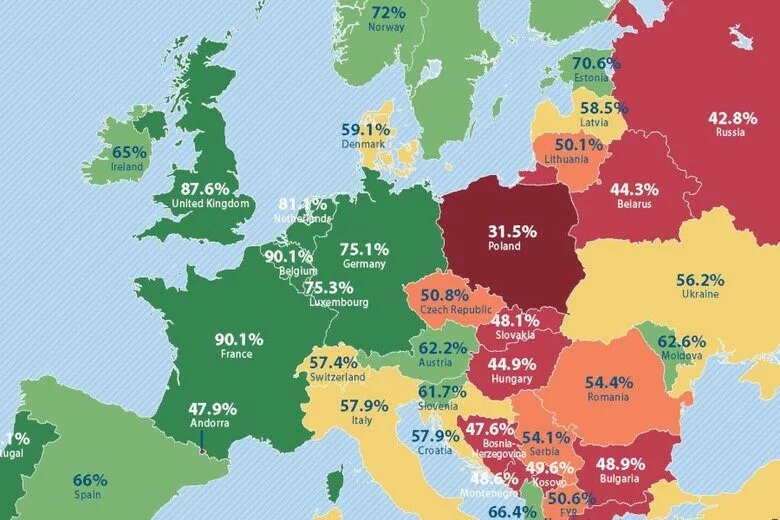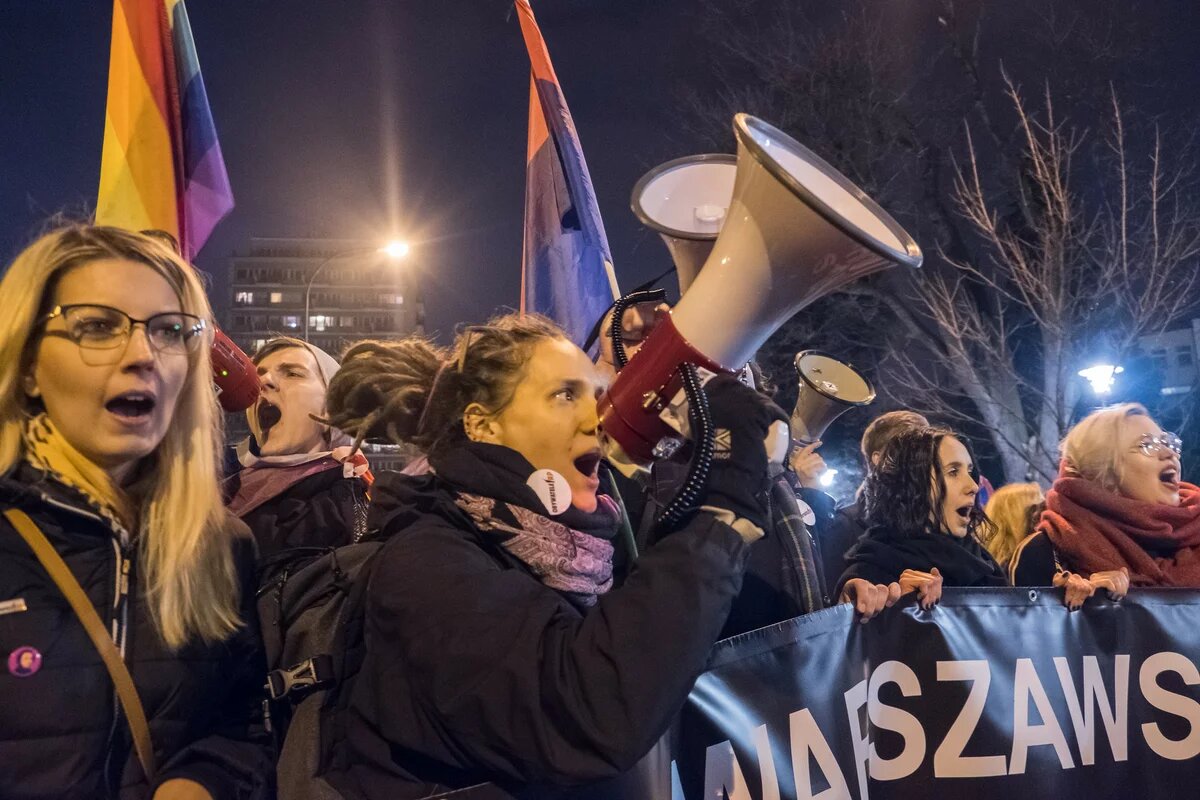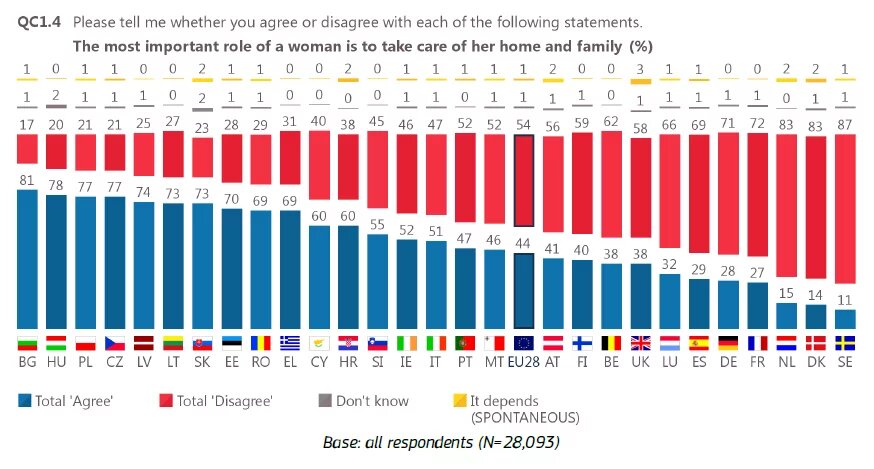
Poland was among the first countries to ratify CEDAW. In which ways has the convention facilitated progress - and what is the impact of the backlash on the implementation of CEDAW?

Out of sight, out of mind
Both the Convention and the CEDAW Committee attach profound significance to comprehensive policies and strategies to combat multiple forms of discrimination against women. In its most recent assessment report (2014) the Committee appreciated the progress in legislative reforms and policy frameworks. Indeed, since 2007, Poland introduced a 35 percent quota on electoral lists (although the lack of a zipper system makes it less effective), enhanced prosecution of rape, extended protection to victims of human trafficking, strengthened the position of vulnerable groups on the labor market, ratified the UN Convention on the Rights of People with Disabilities and improved access to institutional childcare.
Nevertheless, Poland has neither a specific law on gender equality, nor a strategic approach. The Act on the Implementation of Certain Provisions of the European Union in the Field of Equal Treatment is applicable on multiple grounds, but does not acknowledge intersectional discrimination. The law provides protection from sex- and gender-based discrimination only in the area of employment and access to goods and services. As pointed out by the CEDAW Committee, legal remedies to prosecute gender-based discrimination and violence are ineffective (very light sentences; high number of proceedings dismissed). The National Action Plans for Equal Treatment, which were in force twice: 2003-2005 and 2013-2016, “did not sufficiently address women’s rights and their protection from discrimination”, according to the CEDAW Committee.
War on gender, but not on violence
The Church-led campaign against “gender” was waged in 2012 against the Istanbul Convention although contested provisions have been in force since Poland ratified CEDAW. Consequently, it hindered gender equality and united the forces opposing liberal democracy. The lack of governmental reaction to the campaign against “gender ideology”, was criticized by the CEDAW Committee. Ultimately, the government signed the Istanbul Convention in 2012, and ratified it before the 2015 elections in hope of better election outcome, but to no avail.
The Law and Justice (PiS) party enjoyed great electoral success thanks to the narrative which prioritized national sovereignty, social justice (in populist, anti-elitist terms), and traditional, pro-natalist family policies. Their good result is also attributable to the following factors: anger and frustration caused by the rule of the Civic Platform, significant abstention among eligible voters (49 percent) and lobbying by the Catholic Church Episcopate and priests during holy masses to vote for PiS. Since the elections, multiple reports by the EU and UN monitoring bodies identified a serious breach of EU values, the rule of law and backsliding on women’s rights and rights of various minorities.
The PiS party continued both a discursive and a political battle against gender perspective. As a result, decision-makers have undertaken no measures to address gender-based stereotypes and violence. While on average 30 percent of women experience domestic violence and 20 percent rape, specialized NGOs were deprived of ministerial funds for helping victims. In a sharply regressive move the government intended to withdraw from the Istanbul Convention. In response to harsh criticism, officials changed plans and instead announced that they will simply not implement it. Poland has soon found its followers in the war against the Convention. Other countries like Bulgaria, Romania, the Slovak Republic, Latvia, Hungary, Croatia have been using similar arguments about the presumed attack on traditional marriage, hidden agenda, “gender ideology” etc. In most of these countries opposition to the adoption/implementation of the Istanbul Convention is a part of the anti-liberal crusade conducted by ultraconservative advocacy network called “Agenda Europe” (see more in: Datta, 2018)
The lack of separate government authority for gender equality policies since 2006 has been repeatedly criticized by the CEDAW Committee. This problem deepened when the PiS government changed the focus, name and goals of the existing Office of Plenipotentiary for Equal Treatment. The new, gender-blind plenipotentiary deals with civil society issues and is not involved in gender equality policies e.g. The National Action Plans for Equal Treatment have not been and will not be continued.
Back in time - Restoring the natural order
Instead of pursing the EU official approach of gender mainstreaming, the conservative government has been implementing family mainstreaming. The goal is to fossilize traditional gender roles and promote a heteronormative, patriarchal family. For example, the MPs introduced a condition that laws must be evaluated in terms of their impact on the family. Some social policies – like a monthly benefit for each child (circa 125 Euro), guaranteed minimum pensions for mothers of four or more children, newborn allowance, long maternal leaves -encourage women to stay at home and raise children. The traditional family model together with lower retirement age makes women more vulnerable to economic violence and (extreme) poverty in their old age.
The PiS party put in the position of power the Ordo Iuris Institute, which is part of Agenda Europe - a transnational network strategizing to roll back human rights in Europe (Datta, 2018). This think tank has successfully orchestrated many detrimental moves against the Istanbul Convention, anti-discrimination laws, marriage equality, abortion, IVF, sexuality education and protection from gender-based violence.
Under the PiS government, NGOs working on gender and LGBT+ issues experienced smear campaigns and loss of public funding (which is distributed by a government-controlled body). Female participants and leaders of pro-democratic demonstrations were subjected to prosecution, intimidation and surveillance.
On the battleground of women's bodies
Reproductive rights encompass the basic right of all couples and individuals to decide freely the number, spacing and timing of their children and to have the information and means to do so. They are the litmus test for equality and women’s rights. Following the democratic transition, the Catholic Church and conservatives in power pushed through one of the most restrictive anti-abortion laws in Europe. Abortion is legal in three cases only (when pregnancy endangers woman’s life/health, when it is a result of an unlawful act or in case of fetal impairment). The hard-fought democracy deprived women of self-determination. Apart from one thwarted attempt to ease this ban, no Polish government has endorsed CEDAW’s recommendation to make abortion laws less restrictive.
The PiS-dominated parliament eagerly supported the bill “Stop abortion” that would ban abortion in all cases and penalized women for terminating their pregnancies. The fear of Poland becoming a second El Salvador sparked off unprecedented mobilization - the Black Protest. Soon afterwards ultraconservatives, supported by the Catholic Church, tried to ban abortion in case of fetal impairment twofold – through the Parliament and the unsovereign Constitutional Tribunal. Due to mass rallies and international calls, decision-makers decided to stall both processes out of concern for votes in the upcoming series of elections (European and parliamentary in 2019, presidential in 2020). Nevertheless, a variety of systemic barriers to abortion, the chilling effect and conscientious objections to performing abortions have led to a dramatic situation - legal abortions are performed in only 10 percent OB-GYN wards. In its concluding observations, the UN Committee against Torture, noted that denial of legal abortion in Poland may result in physical and mental suffering so severe in pain and intensity that it amounts to torture.
There are many other problems with reproductive health standards, exacerbated by the backlash. Poland has dropped in the Europe-wide review which benchmarks country performance in terms of provision of access to modern contraceptives through national health systems. Poland has the worst result among 46 European countries - 31,5 percent - which is attributable to old deficiencies - lacking subsidies, contraception information and support for vulnerable groups – as well as recent backsliding – obligatory prescriptions for emergency contraception.
It’s the ideology, stupid
The new government has cut subsidies for the national IVF programme and instead invested heavily in “natural procreative technology”, which is inconsistent with valid medical knowledge yet promoted by the Church as an “ethical alternative to in vitro”. This ideologically motivated decision deprived three million Poles of access to their only chance for offspring and effective infertility treatment.
Furthermore, youth receives no evidence-based sexuality education at schools. A subject called “Preparation for Family Life” contradicts the WHO/BZgA Standards for Sexuality Education in Europe on many levels. It reinforces gender stereotypes, as well as prejudice against LGBT+ people and non-traditional families. The quality of this subject has notably deteriorated under the rule of the PiS party. In 2019 PiS-affiliated media and NGOs have conducted smear campaigns against sex educators on an unprecedented scale.
Conclusion
Delayed reporting and few recommendations implemented since its ratification, testify to a low status of CEDAW among almost all Polish governments. Progress in gender equality has evolved at snail’s pace in some areas like legal framework, political representation, social and family policies. There has been little strategic thinking about addressing stereotypes, gender-based violence and inequalities, leaving vulnerable groups – women with disabilities, in rural areas, in precarious employment, single mothers, LGBTI+ persons - behind and out of sight. Public awareness of CEDAW is very low and the Optional Protocol, which enables women to submit complaints against rights’ violation, is hardly ever used. Gender segregation in the educational and vocational systems, gender pay gap, restrictions on reproductive health and failed gender mainstreaming remain unsolved problems. Societal and professional advances have not changed the perception of women’s role in the family.
According to the 2017 CBOS research report Attitude to Gender Equality – Poland vs. Muslim Countries, Catholic Polish men hold views similar to Muslims in the Middle East and North Africa.
Recent turn towards illiberal democracy and a conservative backlash put fundamental women’s rights under violent attack. The PiS government delegitimized gender policy objectives which caused backsliding in implementing and funding respective policies as well as dismantling gender equality mechanisms and institutions – a pure contradiction to CEDAW. With heated anti-genderism discourse Poland has been subjected to a regressive ideology that combines illiberal populism and local nationalism; ideology boosted by the Catholic bishops. With anti-gender movements popping up and growing in various countries worldwide, the prospects of making CEDAW a reality look bleak.
References:
- Alossi Alessandra, 15.05.2018, Developments in the Rule of Law issue in Poland, European Sources Online
- Amnesty International, 2018, Report 2017/2018. The state of the world’s human rights,
- European Union, 2018, Backlash in Gender Equality and Women’s and Girls’ Rights, commissioned by the European Parliament’s Policy Department for Citizens’ Rights and Constitutional Affairs at the request of the FEMM Committee
- Broszkowski Roman, 11.10.2019, Under Attack: Reproductive Rights in Poland, Political Critique
- CBOS, 2017, Attitude to Gender Equality – Poland vs. Muslim Countries (Stosunek do równouprawnienia płci – Polska vs. kraje muzułmańskie), Nr 157/2017, Fundacja Centrum Badania Opinii Społecznej, based on: El Feki Shereen, Heilman Brian, Barker Gary, 2017, Understanding Masculinities: Results from the International Men and Gender Equality Survey (IMAGES) – Middle East and North Africa, Cairo and Washington, D.C.: UN Women and Promundo-US
- CEDAW Committee, 14.11.2014, Concluding observations on the combined seventh and eights periodic reports of Poland
-
CIVICUS, 2017, State of Civil Society Report
-
Corrêa Sonia, Paternotte David, Kuhar Roman, 31.05.2019, The globalisation of anti-gender campaigns, International Politics and Society
- Datta Neil, April 2018, "Restoring the Natural Order”: The religious extremists’ vision to mobilize European societies against human rights on sexuality and reproduction, Brussels: European Parliamentary Forum for Sexual and Reproductive Rights
- Ebeturk Irem, 6.06.2018, Norms of gender equality and the backlash against Istanbul Convention, Orders Beyond Borders
- European Commission, November 2017, Special Eurobarometer 465, Gender Equality 2017. Gender Equality, Stereotypes, and Women in Politics
- European Parliamentary Forum for Sexual and Reproductive Rights, February 2019, Contraception Atlas 2019. Tracking government policies on contraceptive supplies, family planning counselling and provision of online information on contraception
- Federation for Women and Family Planning, 23.03.2018, Over 200 international NGOs appeal for the rejection of “Stop abortion” bill
- Federation for Women and Family Planning, 26.03.2018, International support against the pending abortion ban in Poland
- Federation for Women and Family Planning, 29.03.2018, Great mobilization on #BlackFriday
- Federation for Women and Family Planning, 29.06.2018, Barbarian anti-abortion bill back in the fundamentalists’ game. Reactions
- Fitzgerald Mary, Provost Claire, 11.07.2019, The American dark money behind Europe’s far right, Open Democracy
- Giugni Lilia, 12.04.2019, Women’s Rights Backlash and Feminist Revival: Gender Equality in 2019, The Globe Post
- Juhász Borbála, Dr. Pap Enikő, June 2018, Backlash in Gender Equality and Women’s and Girls’ Rights, Policy European Union: Department for Citizen's Rights and Constitutional Affairs,
- Knight, Kyle, Margolis Hillary, 19.03.2019, Sex Education Under Fire Again in Poland, Human Rights Watch
- Margolis Hillary, 2019, “The Breath of the Government on My Back” Attacks on Women’s Rights in Poland, Human Rights Watch
- Pocheć Magdalena, Popławska Agnieszka, September 2014, Alternative Report on the implementation of the Convention on the Elimination of All Forms of Discrimination Against Women (CEDAW) Poland 2014, KARAT Coalition
- Policy Department for Citizens’ Rights and Constitutional Affairs, 2018, Sexual and reproductive health rights and the implication of conscientious objection
- Schenkkan Nate, 2018, “Nations in transit 2018”, Freedom House
- Thompson Isobel, 30.03.2019, Europe’s aristocratic elite in the fight against women’s and LGBT rights, Open Democracy



